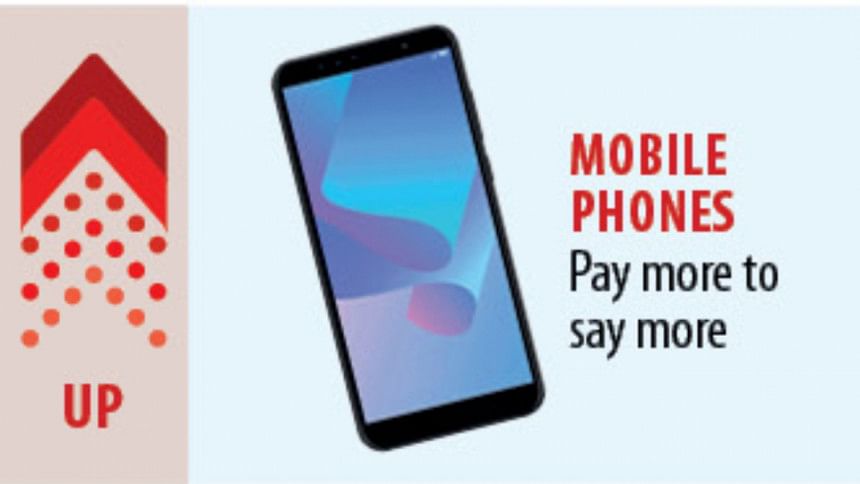Smartphone import to be costlier

Imported smartphones are scheduled to turn much costlier as the government has proposed increasing supplementary duty from 10 percent to 25 percent.
Local assemblers termed it a prudent decision that would help their industry to grow.
In 2017-18, the government first offered some tax benefits to local assemblers and increased the import tax. The next year the tax structure was revised with the supplementary duty raised to 10 percent from 5 percent.
Currently the total tax on imported handsets is 32 percent, which will go up to over 50 percent. In contrast, locally assembled ones have to bear about 17 percent in taxes. For handsets manufactured in Bangladesh, the tax is just 5 percent.
Quick to avail the tax benefit, five local and international brands have already started assembling mobile devices, catering to about 30 percent of the country's annual demand for 3.5 crore handsets.
Of the demand, smartphones account for about one core pieces while the total sales amount to around Tk 10,000 crore.
"At the end of this year we, the local assemblers, will be able to cater to about 50 percent of the total demand and by 2020 around 95 percent," said Ruhul Alam Al-Mahbub Manik, president of Bangladesh Mobile Phone Manufacturing Association.
Manik, also chairman of Fair Group, which started assembling Samsung-branded handsets from last year, said the new decision would help local entrepreneurs gradually establish other tech-based industries.
New companies might also establish plants, he added.
Samsung is currently locally assembling 95 percent of its handsets sold in Bangladesh.
Alongside the South Korean electronics giant, current market leader Symphony, Transsion Bangladesh, Walton and 5 Star Mobile are also running mobile production plants.
Mobile phone operators, however, say the decision would go against digitalisation of the country for it would limit options available.
Taimur Rahman, chief corporate and regulatory affairs officer at Banglalink, said the move would go against people.
"Smartphone penetration is increasing gradually in the country as people irrespective of their financial statuses have started using smartphones as a means of accessing various digital facilities," he said.

 For all latest news, follow The Daily Star's Google News channel.
For all latest news, follow The Daily Star's Google News channel. 







Comments